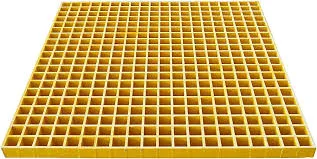
-
 Afrikaans
Afrikaans -
 Albanian
Albanian -
 Amharic
Amharic -
 Arabic
Arabic -
 Armenian
Armenian -
 Azerbaijani
Azerbaijani -
 Basque
Basque -
 Belarusian
Belarusian -
 Bengali
Bengali -
 Bosnian
Bosnian -
 Bulgarian
Bulgarian -
 Catalan
Catalan -
 Cebuano
Cebuano -
 China
China -
 China (Taiwan)
China (Taiwan) -
 Corsican
Corsican -
 Croatian
Croatian -
 Czech
Czech -
 Danish
Danish -
 Dutch
Dutch -
 English
English -
 Esperanto
Esperanto -
 Estonian
Estonian -
 Finnish
Finnish -
 French
French -
 Frisian
Frisian -
 Galician
Galician -
 Georgian
Georgian -
 German
German -
 Greek
Greek -
 Gujarati
Gujarati -
 Haitian Creole
Haitian Creole -
 hausa
hausa -
 hawaiian
hawaiian -
 Hebrew
Hebrew -
 Hindi
Hindi -
 Miao
Miao -
 Hungarian
Hungarian -
 Icelandic
Icelandic -
 igbo
igbo -
 Indonesian
Indonesian -
 irish
irish -
 Italian
Italian -
 Japanese
Japanese -
 Javanese
Javanese -
 Kannada
Kannada -
 kazakh
kazakh -
 Khmer
Khmer -
 Rwandese
Rwandese -
 Korean
Korean -
 Kurdish
Kurdish -
 Kyrgyz
Kyrgyz -
 Lao
Lao -
 Latin
Latin -
 Latvian
Latvian -
 Lithuanian
Lithuanian -
 Luxembourgish
Luxembourgish -
 Macedonian
Macedonian -
 Malgashi
Malgashi -
 Malay
Malay -
 Malayalam
Malayalam -
 Maltese
Maltese -
 Maori
Maori -
 Marathi
Marathi -
 Mongolian
Mongolian -
 Myanmar
Myanmar -
 Nepali
Nepali -
 Norwegian
Norwegian -
 Norwegian
Norwegian -
 Occitan
Occitan -
 Pashto
Pashto -
 Persian
Persian -
 Polish
Polish -
 Portuguese
Portuguese -
 Punjabi
Punjabi -
 Romanian
Romanian -
 Russian
Russian -
 Samoan
Samoan -
 Scottish Gaelic
Scottish Gaelic -
 Serbian
Serbian -
 Sesotho
Sesotho -
 Shona
Shona -
 Sindhi
Sindhi -
 Sinhala
Sinhala -
 Slovak
Slovak -
 Slovenian
Slovenian -
 Somali
Somali -
 Spanish
Spanish -
 Sundanese
Sundanese -
 Swahili
Swahili -
 Swedish
Swedish -
 Tagalog
Tagalog -
 Tajik
Tajik -
 Tamil
Tamil -
 Tatar
Tatar -
 Telugu
Telugu -
 Thai
Thai -
 Turkish
Turkish -
 Turkmen
Turkmen -
 Ukrainian
Ukrainian -
 Urdu
Urdu -
 Uighur
Uighur -
 Uzbek
Uzbek -
 Vietnamese
Vietnamese -
 Welsh
Welsh -
 Bantu
Bantu -
 Yiddish
Yiddish -
 Yoruba
Yoruba -
 Zulu
Zulu
frp desalination pipes and fittings for efficient water treatment ...
The Role of FRP Desalination Pipes and Fittings in Efficient Water Treatment
In the face of growing global water scarcity, desalination has emerged as a pivotal solution, converting seawater into freshwater to meet the burgeoning demand for potable water. Among the critical components of desalination systems, the choice of materials plays a significant role in enhancing the efficiency and longevity of these systems. One material that has gained considerable attention is Fiber Reinforced Plastic (FRP).
FRP pipes and fittings present numerous advantages over traditional materials such as metal and concrete, particularly in the context of desalination. One of the primary benefits of FRP is its remarkable resistance to corrosion. Desalination processes typically involve aggressive brine solutions and high salinity levels, which can lead to the rapid deterioration of conventional materials. FRP’s resistance to chemical attack ensures that the pipes maintain their structural integrity over time, reducing the need for frequent replacements and repairs.
Another significant advantage of FRP pipes and fittings is their lightweight nature. This characteristic simplifies transportation and installation processes, thereby decreasing construction costs and time. Since desalination plants are often located in remote areas near coastlines, the ease of handling FPR material provides a logistical advantage, making it easier to implement and expand desalination projects in various settings.
frp desalination pipes and fittings for efficient water treatment ...

Furthermore, the thermal insulation properties of FRP materials contribute to energy efficiency during desalination processes. By minimizing heat loss or gain, FRP pipes can help maintain optimal temperatures within the system, leading to improved energy consumption rates. This factor is crucial, as energy costs constitute a significant portion of the operational expenses in desalination plants.
In addition to performance, FRP fittings provide versatility in design. They can be manufactured in various shapes and sizes to meet specific operational requirements, allowing for the customization of desalination systems. This adaptability ensures that plants can be designed with greater efficiency in mind, catering to various scenarios and challenges.
Moreover, the environmental considerations associated with FRP materials also cannot be overlooked. As societies strive for sustainability, the use of compliant materials in the water treatment process aligns with the overall goal of reducing ecological footprints. FRP’s recyclability and ability to provide efficient solutions reflect a commitment to both technological advancement and environmental stewardship.
In conclusion, FRP desalination pipes and fittings stand at the forefront of efficient water treatment solutions. Their corrosion resistance, lightweight nature, energy efficiency, and design flexibility collectively make them an ideal choice for modern desalination projects. As we continue to seek sustainable water sources, the integration of advanced materials like FRP will be crucial in shaping the future of water treatment technologies.
Latest news
-
Exploring the Benefits of Top Hammer Drifter Rods for Enhanced Drilling PerformanceNewsJun.10,2025
-
High-Precision Fiberglass Winding Machine for GRP/FRP Pipe Production – Reliable & Efficient SolutionsNewsJun.10,2025
-
FRP Pipes & Fittings for Shipbuilding - Corrosion-Resistant & LightweightNewsJun.09,2025
-
Premium FRP Flooring Solutions Durable & Slip-ResistantNewsJun.09,2025
-
Premium Fiberglass Rectangular Tanks Durable & Lightweight SolutionNewsJun.09,2025
-
Tapered Drill String Design Guide Durable Performance & UsesNewsJun.09,2025









